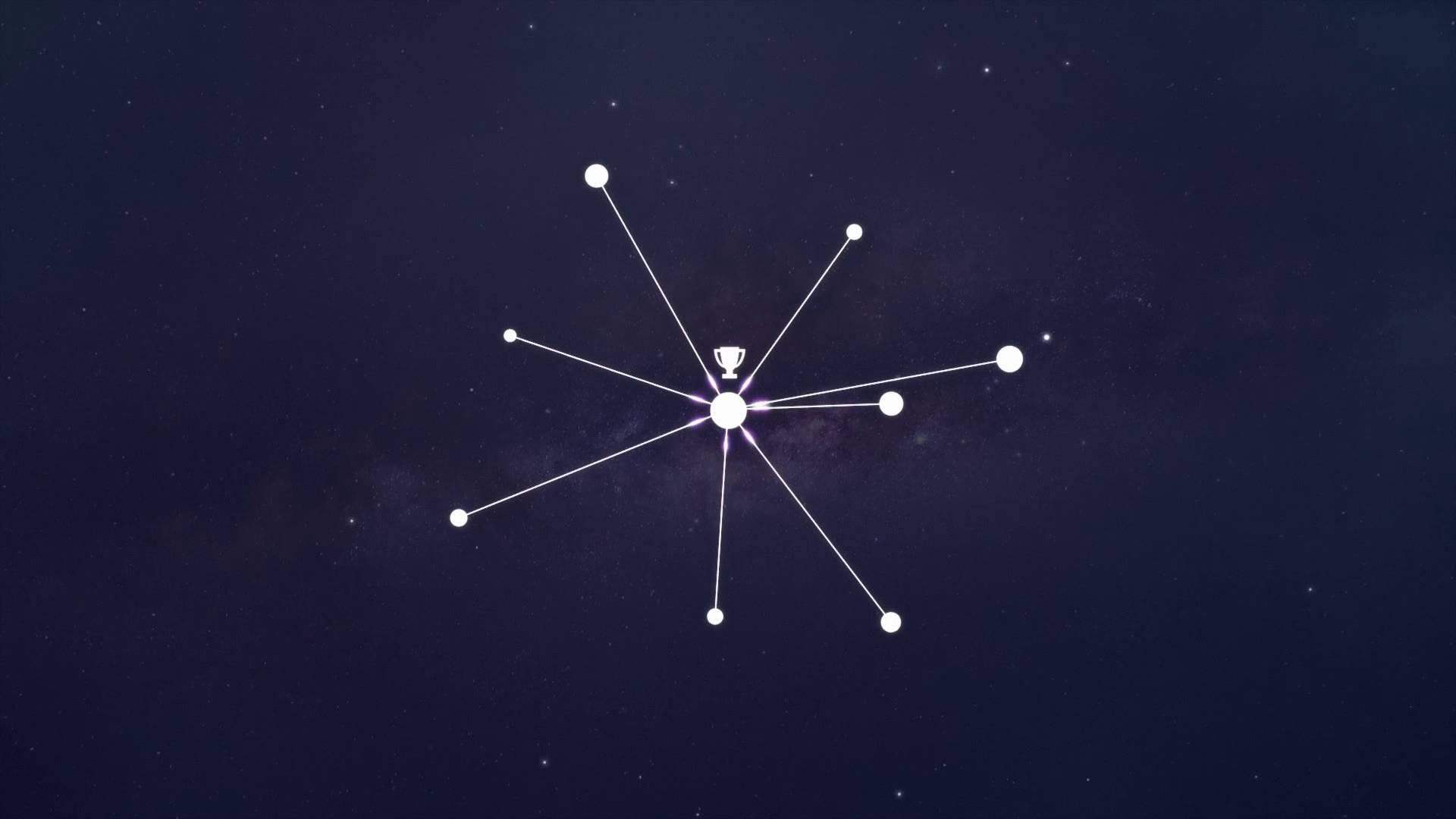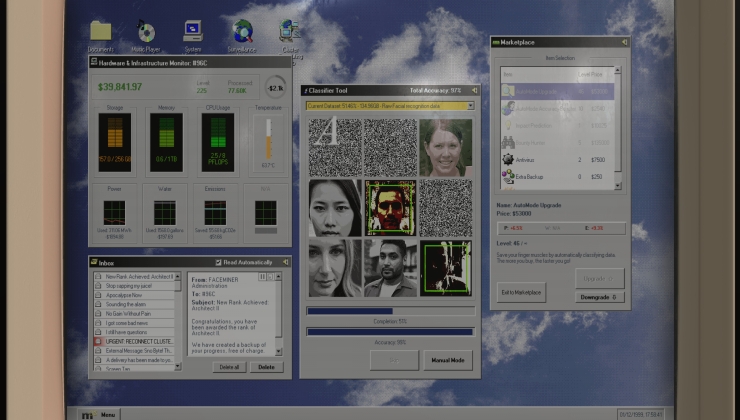A forum goer of GOG and occasional GamingOnLinux commenter of the name shmerl has been campaigning for this to happen, starting a wishlist item and a forum thread on GOG for users to vote and comment on the matter.
For those of you who do not yet know, GOG's Galaxy is akin to Valve's Steam, with a few differences.

Nevertheless, why should we give a flying fudge about whether or not Galaxy should be open source? Fenixp, a forum goer of GOG, tells us why:
Fenixp could not think of any downsides to open sourcing Galaxy, and I cannot come up with any issues with this either. Can you, and even if you can, do they carry enough weight to completely negate the presented advantages?
shmerl has also asked that I link to the following items regarding the documentation of the protocol and API of Galaxy to enable community alternatives:
Wishlist item
Forum thread
For those of you who do not yet know, GOG's Galaxy is akin to Valve's Steam, with a few differences.

YouTube videos require cookies, you must accept their cookies to view. View cookie preferences.
Direct Link
Direct Link
Nevertheless, why should we give a flying fudge about whether or not Galaxy should be open source? Fenixp, a forum goer of GOG, tells us why:
Fenixp
A) The part of the community who's capable at programming can make:
- Their own, personal branches of the application to suit their own needs.
- Collaborate on public branches, implementing functionality that GOG would never have thought of, with the possibility of GOG incorporating the best ones into the core application - that's free work for GOG and more options for every customer. Good example would be cloud saves, video streaming etc. - I'm willing to bet that if GOG doesn't implement them in the first place, this functionality will get into a usable state within weeks of community contribution. And best of all, GOG does not have to actually accept these features and incorporate them into the main release.
B) Developers! If GOG provides both API AND source code for the application, devs can actually make their own additions of features they would expect of the client - again, with no cost for GOG, but with the benefit of GOG saying whether or not that particular feature is acceptable.
C) The heightened security associated with open source software.
D) Free debugging/bug fixing. If there's a bug GOG can't quite murderize - a common occurrence in GOG's software - at one point or another, a community member will come out and do it for them. For free.
E) Talent hunting. Whenever GOG or CD-Project needs to expand their teams, suddenly they'll have a bunch of proven developers to choose from.
F) On Linux, the open source client can be packaged in system repositories.
G) Popularity. If GOG wants to expand to Linux world and releases an open source client, they suddenly get a lot of converts from Steam and a shitton of sales.
Fenixp could not think of any downsides to open sourcing Galaxy, and I cannot come up with any issues with this either. Can you, and even if you can, do they carry enough weight to completely negate the presented advantages?
shmerl has also asked that I link to the following items regarding the documentation of the protocol and API of Galaxy to enable community alternatives:
Wishlist item
Forum thread
Some you may have missed, popular articles from the last month:
All posts need to follow our rules. For users logged in: please hit the Report Flag icon on any post that breaks the rules or contains illegal / harmful content. Guest readers can email us for any issues.




 How to set, change and reset your SteamOS / Steam Deck desktop sudo password
How to set, change and reset your SteamOS / Steam Deck desktop sudo password
I dare you to prove me wrong, GOG.
Why can't it happen? I don't really see any downsides for GOG.
Wrong.
From the GOG perspective, there is a very obvious point - trust (as explained in the GOG wishlist item and on the forum. Just open and read the explanation). Open code can be audited externally (it doesn't mean it always is, but it can be).
Cause valve is to big :P. I wont change client just because I cant play offline.
Steam allows you to play most of the games offline.
I already got all my games on steam, and meny gamers are on the same page there I guess.
And I dont think I never experinced a game that wont allow you to play cause you are in offline mode.
And if u want to "hide" or stay more "private" there is options for it also.
And if u want to play with your friends like he says, u have to stay online.
There is nothing unik, well its Open source, but I dont think its enoff. Even EA finds it hard to get more users in there orgin.
And dont get me wrong, I dont hate this or dont want them to be succsesful, I just dont think this will work.
atleast I dont see why I should use this instead of steam, so I can play offline? Cause its Opensource?
I don't understand really what you mean. What does Valve have to do with GOG opening or not opening their client?
What I'm trying to say here is, I dont think gamers will use the GOG client. I dont really see a point in it myself. Yes its opensource, and you can play offline and so on.
And there isnt really that mutch difference compaired to steam or other clients.
You can already buy games on GOG and add them to steam after you payed
And maybe I'm just a valve fanboy lol :D.
Ah, that's a completely different topic, unrelated to the discussion above which is about convincing GOG to open their own client.
And just to clarify - you are wrong. Gamers are already using GOG's Galaxy. For example for the Witcher adventure game.
There are governance implications, depending on the way and licensing.
So, even if GOG can't open source the client, they can document the protocol:
https://secure.gog.com/wishlist/site/document_the_protocol_and_api_of_the_galaxy_updater_client_to_enable_community_alternatives
That for sure shouldn't have any blockers.
The obvious downside: some other gaming store uses the open source client. Now their competition benefits from GOG's effort.
If everything were open there'd be no money to be made in programming anymore. How about we pick whatever it is you do for a living and decide that everything associated with that should be free?
That's a pretty empty downside. GOG doesn't sell their client, they sell their service.
That's nonsense. Open doesn't mean it can't be commercially used to make money. Or I guess RedHat and others just get money from thin air.
In gaming context, that can be more interesting though. For example you can't use most business models like support and etc. Games work on hard sales. So making the game fully open makes it hard to sell. For that one can make the engine open and artistic assets closed.
Anyway, in GOG's case they aren't selling their client.
1) GOG put money, time and effort into developing their client. That's that much less effort a competitor needs to bring.
2) Let's retire the canard about just because it's open it doesn't mean you can't make money from it. You can beg for donations, or if your software is large and complex like RHEL you can charge for support, but other than that being open source effectively does mean being free. We can count on one hand the open source projects that are actually providing a (minimal) living for their programmers. What do you think would happen to Microsoft's revenue if they open-sourced all of their code tomorrow? What about trade secrets? What if my program was a stock picker or horse race handicapping software?
One can argue that all or almost all software should be supplied with source code, but it's a far greater hurdle to argue that all software should be open source.